Makita 18 in. 18-Volt X2 (36-Volt) LXT Lithium-Ion Cordless Walk Behind Push Lawn Mower Kit with 4 Batteries (4.0 Ah)
Commercial-grade, steel deck built for tough mowing. Folding handles for easy storage.
Weather-resistant construction (IPX4).
Makita is expanding the line of cordless OPE to include the 18V X2 LXT Lithium-Ion (36V) 18 In. Lawn mower. With zero emissions, lower noise and reduced maintenance, the 18V X2 (36V) cordless lawn mower is a welcome solution for efficient grass cutting. It’s powered by two 18V LXT batteries for maximum power and run time, but without leaving the 18V battery platform. The Makita-built motor delivers up to 3,300 RPM. The mower offers ease-of-use features including quick height adjustments and folding handles for compact storage. Model XML03CM1 is a kit and includes the lawn mower, four fast-charging 18V LXT Lithium-Ion 4.0 Ah batteries and an efficient 18V dual port charger. The lawn mower also features Makita extreme protection technology (XPT). XPT is a protective seal inside the tool, and is engineered for improved operation in harsh conditions by channeling water and dust from key internal components. It’s part of Makita’s expanding 18V Lithium-Ion system, the world’s largest cordless tool system powered by 18V Lithium-Ion slide-style batteries. Makita 18V batteries have the fastest charge times in their categories, so they spend more time working and less time sitting on the charger. For improved tool performance and extended battery life, Makita created Star Protection Computer Controls.
- No gas, emissions, oil mixing or pull starts
- Cuts up to 1/3 acre in 43 minutes or less using (4) 18-Volt LXT 4.0 Ah batteries
- Commercial-grade steel deck
- 14-Gauge commercial-grade steel deck with 25% thicker steel compared to industry standard mowers with a 16-Gauge deck
- BL brushless motor delivers up to 3,300 RPM for faster cutting
- Quiet mode reduces noise by providing constant speed control
- Folding handles for compact storage and transportation
- Includes plug needed for mulching operation
- Single lever cutting height adjustment for quick adjustment of 10 cutting heights (13/16 in. to 3 in.)
- Grass catcher bag holds up to 1.7 bushels of grass
- Rubberized soft grip handle bar for added comfort
- IPX4 weather-resistant construction for durability and long life
- Features Extreme Protection Technology (XPT) which is engineered to provide increased dust and water resistance in harsh job site conditions
- Equipped with Star Protection Computer Controls to protect against overloading, over-discharging and over-heating
- 3-year limited warranty on tool, battery and charger
- Only use genuine Makita batteries and chargers
Additional information
| Assembled Depth x Height x Width (in.) | 66.125 x 37.75 x 21 |
|---|---|
| Blade Length (in.) | 18 |
| Cutting Width (in.) | 18 |
| Front Wheel Size (in.) | 7 |
| Mower Deck Width (in.) | 21 |
| Rear Wheel Height (in.) | Low Wheel |
| Rear Wheel Size (in.) | 8 |
| Certifications and Listings | UL Listed |
| Manufacturer Warranty | 3-year limited warranty on tool, battery and charger |

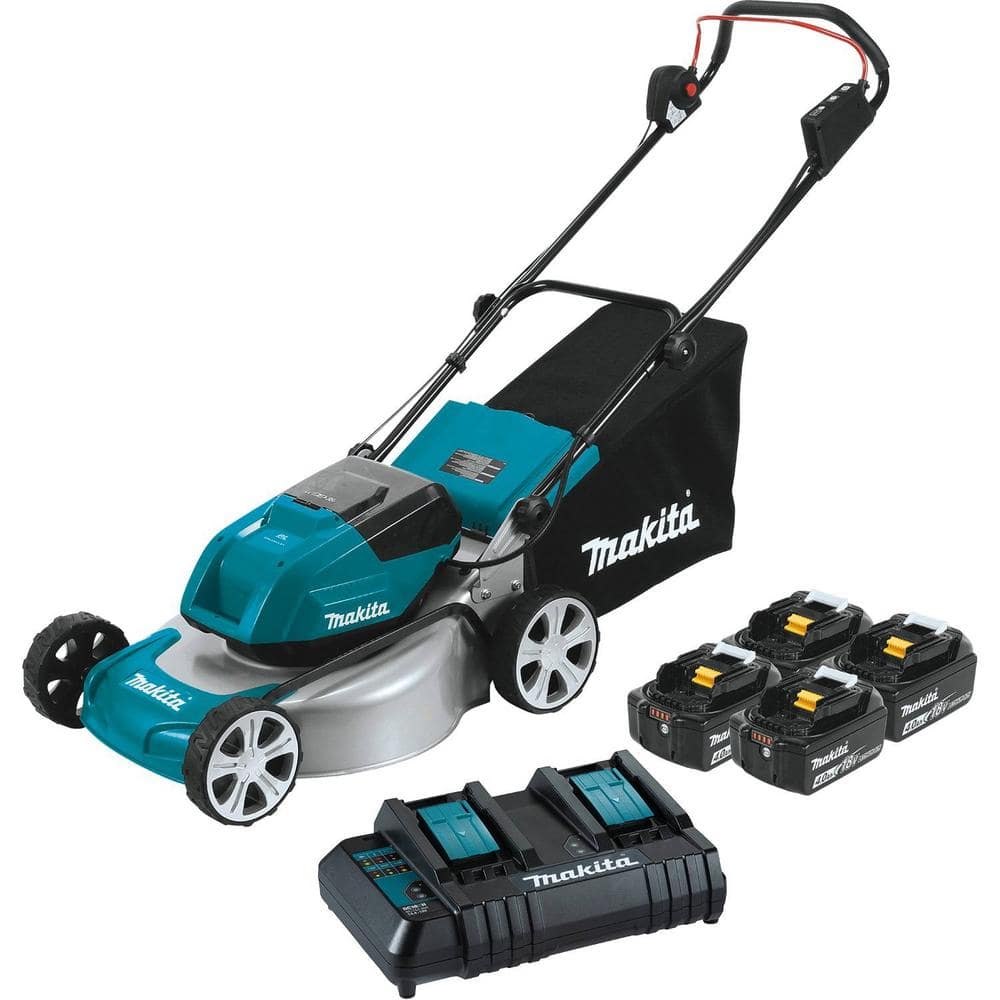
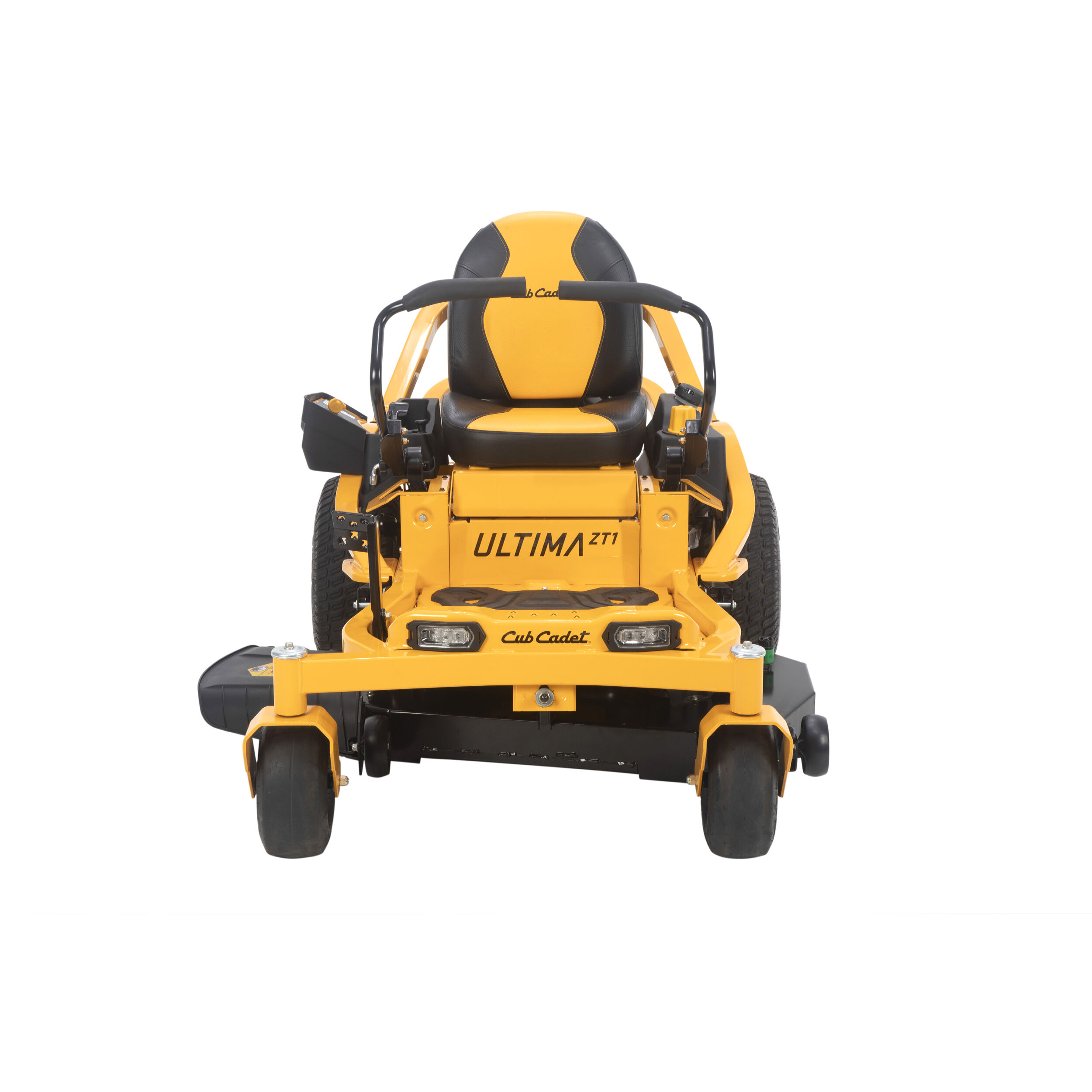
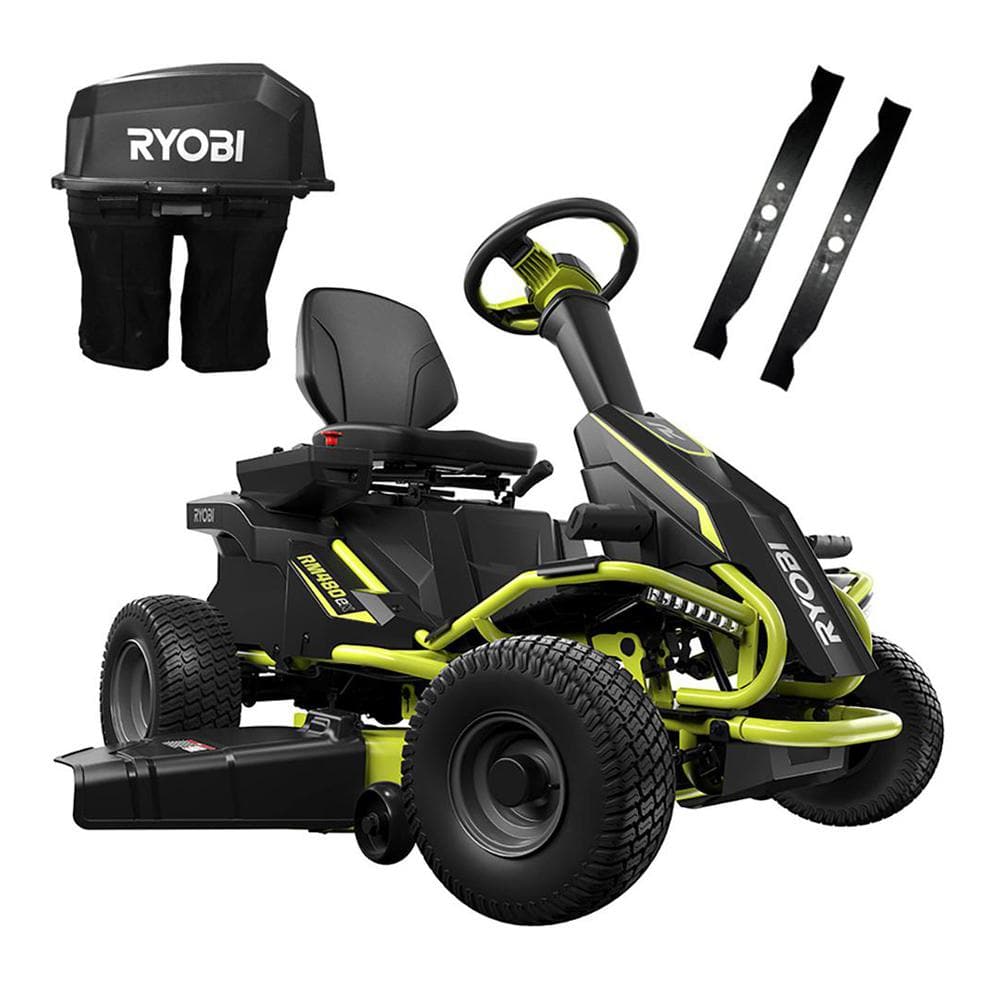
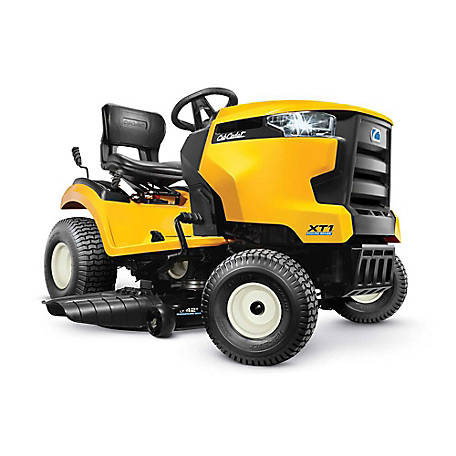
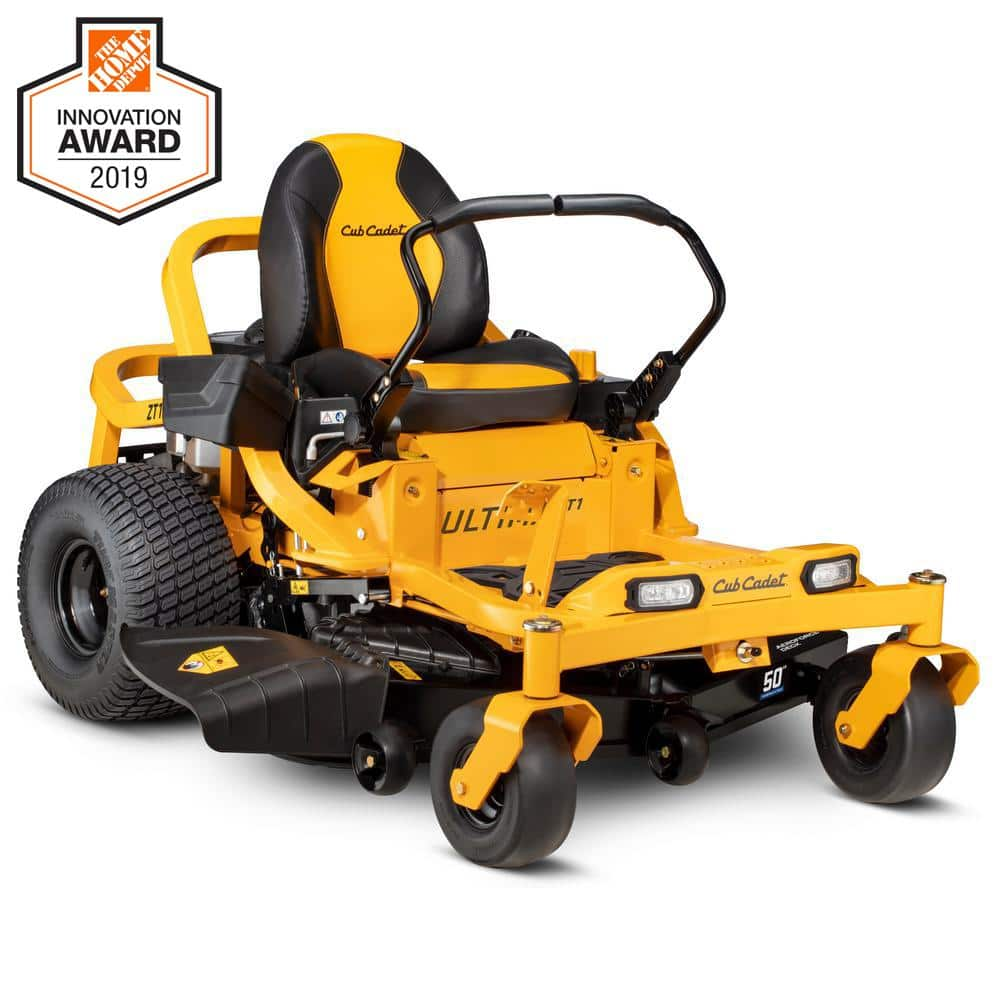
by Steve
My first electric lawnmower. Does well, but I’m a little disappointed with the battery life. I don’t have a large yard, but the batteries don’t finish my lawn before they need recharging. Mower also doesn’t handle thick grass without stalling.
by Alan
The battery life exceeded my expectations.
by James
I have been very pleased with this lawn mower. We have a very uneven lawn with lots of weeds and moss. This mower cuts right through it all. Plenty of power. Easy to use. Nice to be able to interchange batteries with my other Makita tools. My only complaint is that I wish it had more padding on the handle.
by Chris
This tool has excellent performance and is easy to use. I love it.
by Ross
All good but a little expensive.